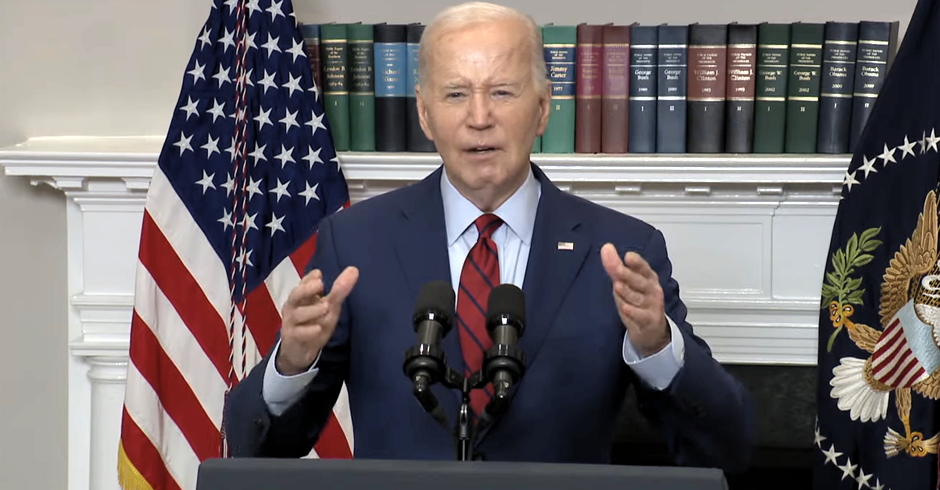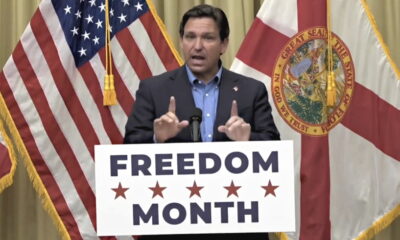I Wish I Knew How It Would Feel To Be Free: On Rise Of The Planet Of The Apes And The Help
There is…a myth about America to which we are clinging which has nothing to do with the lives we lead…this collision between one’s image of oneself and what one actually is is always very painful and there are two things you can do about it, you can meet the collision head-on and try and become what you really are or you can retreat and try to remain what you thought you were, which is a fantasy, in which you will certainly perish.
-James Baldwin, (Nobody Knows My Name, 1961)
Â
1
You know something very bizarre is going on in Hollywood when the movie “Rise of Planet of the Apes” tells more about the black experience in America than “The Help.”
I went to see Rise of the Planet of the Apes because it’s summer, the time for escapist movies, and right now there is a lot I want to escape from. I’m tired of hearing about the Tea Party and debt ceilings; Christine O’Donnell, pampered and indulged by Fox News, just walked off Piers Morgan’s talk show because he had the nerve to ask her as a politician about her views on gay marriage and Don’t Ask, Don’t Tell: the Bush insanity is making a comeback. I go back and forth between being outraged and disappointed with Obama and feeling genuinely sorry for him. Having not run for president as a black person, he can’t play the “discrimination†card against John Boehner & Co. now when he needs it most. (Whether he has the most powerful position in the world or works at McDonald’s, Obama’s black in America, which means he has to deal with at least one racist white person at his job.)
An hour into Rise of the Planet of the Apes, and on the verge of tears, I felt questions of politics and race more present than ever, and thought, “What the hell is going on in this movie?†So much for escapism.
One thing that was definitely going on was the beauty of Andy Serkis’ peformance as the chimpanzee Caesar. (Regrettably, it is almost impossible to discuss the film without giving away some plot details.) Caesar’s mother is killed after she goes on a destructive rampage in the laboratory where she has been used for drug testing. It is later discovered that she was trying to protect the baby no one knew she had. Caesar, as he is later named, has absorbed traces of the drug given to his mother to reverse the effects of Alzheimer’s. The drug, it is soon discovered, also has the effect of increasing mental ability. When the research is terminated, all the chimps are put down, but one of the scientists, Will Rodman, played by James Franco, sneaks Caesar home from the lab and raises him. Caesar goes from an adorable baby to a soulful, intelligent adult. When, during a misunderstanding, Caesar attacks a neighbor fighting with Will’s father, he is sent to a court-ordered sanctuary and forced to stay there, separated from everyone he knows and loves. It becomes clear that the sanctuary is a brutal place, and the apes there reflect long-term oppression and neglect: rage, depression, sickness, in-fighting, hysteria, and heartbreak. Rodman is forced to leave Caesar, and is tricked into thinking the sanctuary is a safe place. The apes are kept in dark, damp cages out of sight, where they are treated cruelly, taunted by a white overseer.
So many things are happening in these scenes: the primates in their cages and the attempts to the communicate through the bars despite their differences (Caesar befriends a circus orangutan), recalls enslaved Africans trying to communicate with each other whilst speaking different languages during the Middle Passage. At one point, Caesar has a hose turned on him as punishment for rebelling, recalling images of brutality from the civil rights movement. The man who runs the Sanctuary tells Rodman to make sure to call before he comes, meaning he wants time to prepare for his visit and hide the signs of abuse. Rise of the Planet of the Apes then becomes a movie about those thrown away in our society, about institutional care for the mentally ill, or elder care when patients are left to waste, only to be “cleaned up†for their families on visiting days. In the yard, when all the apes are briefly allowed to leave their cages, Caesar is forced to defend himself from another inmate. The viewer experiences the horror of being incarcerated, of having to survive within the prison system. Because there is no condescension in Serkis’ performance, nor in the writing or directing, the scenes have the power to overwhelm one emotionally. When the apes orchestrate their break from the “sanctuary†there is a soulful look between Caesar and the orangutan, a deep, mature, knowing exchange that made me want to sit up and shout, “Now that was definitely a black look!â€
At one point in the movie, when the testing of the drug is reinstated, a new chimp named Koba is brought in, who has clearly been through hell. His face alone can move one to tears, or terror. I loved the movie at this point for showing us that face, because every black person in America has at least one family member with a face like that, whether we admit it or not. It’s the cousin in prison, or the relative driven mad by racism or poverty. It’s the face of an angry slave, a face that has been whipped and tortured. It’s a dangerous face, a face that you keep incarcerated, or your boot pressed down against, because if that face ever gets up, it’s going to have something for your ass. (There’s no face like this, by the way, in The Help.)
On one of the promotional posters I saw, an ape is holding up his fist, Black Panther Party-style, and the tagline reads, “Evolution Becomes Revolution.†Could it be that when Hollywood finally decides to tell the truth about black lives, it’s Rise of the Planet of the Apes? And, if so, how fucking shady is that? Perhaps no one would come to see a bunch of black people rioting and throwing metal spears at police cars (spears made from the broken fence of the local zoo where the primates liberate others from captivity), but they’ll watch these apes. And with one very cruel exception, the apes are surprisingly non-violent. They kick ass, but only when they feel they have to: and there are many instances where the film could have poured on the sadism, but the apes make their point, and let the people go. They don’t want revenge for revenge’s sake, but self-determination.
(One person they don’t let go, however, is the greedy, unscrupulous black man who finances and runs the lab. David Oyelowo may have the singular distinction of being the longest-surviving black man in a horror film. I wasn’t sure what to make of his casting, but it does provide an interesting curly-cue, having the evil capitalist in the movie be black. (Shades of Condi Rice?) As more blacks seem to be craving a piece of the corporate, capitalist pie without apology, or scruples, Rise of the Planet of the Apes may be making the point that to the oppressed and the poor, the distinction between whites and blacks in power may not be so distinct anymore.)
I came out of Rise of the Planet of the Apes feeling larger and beautiful, which isn’t easy for a black man to admit, because the last thing you want anyone to compare you to, or to compare yourself to in a racist society, is an ape. I am aware that a white writer might seriously hesitate to write a piece comparing Caesar to a black man. But the real truth of the movie is an emotional one, transcending race and categorization. Rise of the Planet of the Apes could have been done in the “blaxploitation†tradition, a revenge fantasy for the oppressed, but it goes deeper than that. It speaks to anyone who has been brutalized, but even more significantly, underestimated. And if you’ve ever been raped, or bashed, or bullied, or called a faggot for being gay, or “caged†by being made “otherâ€, you know what it means to want to escape from the cruelty of being unvalued, to find your own sense of self-definition and power.
When Rodman is reunited with Caesar in the forest and offers to bring him home, Caesar, who is now smart enough to talk, says, “Caesar is home†with the resonance and power of James Earl Jones. He starts out the child of a kidnapped mother that he never really knew (a mother captured by black hands in the movie’s preamble, referencing African tribes’ participation in the slave trade), and through intelligence and skill survives the prison his oppressors put him in. Creating a liberation experience from his incarceration (Nelson Mandela), he finds his courage and independence and becomes a leader.
Nina Simone sings, “I wish I knew how it would feel to be free. I wish I could break all the chains binding me.†It feels utterly bizarre to suggest people of color see Rise of the Planet of the Apes because of its healing power, but I will say that when Caesar’s black hand opens his cage for the first time, you feel the potential to be released from your own, and you rejoice.
Please continue to Part II.
 Max Gordon is a writer and activist. He has been published in the anthologies Inside Separate Worlds: Life Stories of Young Blacks, Jews and Latinos (University of Michigan Press, 1991), Go the Way Your Blood Beats: An Anthology of African-American Lesbian and Gay Fiction (Henry Holt, 1996) and Mixed Messages: An Anthology of Literature to Benefit Hospice and Cancer Causes. His work has also appeared on openDemocracy, Democratic Underground and Truthout, in Z Magazine, Gay Times, Sapience, and other progressive on-line and print magazines in the U.S. and internationally.
Max Gordon is a writer and activist. He has been published in the anthologies Inside Separate Worlds: Life Stories of Young Blacks, Jews and Latinos (University of Michigan Press, 1991), Go the Way Your Blood Beats: An Anthology of African-American Lesbian and Gay Fiction (Henry Holt, 1996) and Mixed Messages: An Anthology of Literature to Benefit Hospice and Cancer Causes. His work has also appeared on openDemocracy, Democratic Underground and Truthout, in Z Magazine, Gay Times, Sapience, and other progressive on-line and print magazines in the U.S. and internationally.

Enjoy this piece?
… then let us make a small request. The New Civil Rights Movement depends on readers like you to meet our ongoing expenses and continue producing quality progressive journalism. Three Silicon Valley giants consume 70 percent of all online advertising dollars, so we need your help to continue doing what we do.
NCRM is independent. You won’t find mainstream media bias here. From unflinching coverage of religious extremism, to spotlighting efforts to roll back our rights, NCRM continues to speak truth to power. America needs independent voices like NCRM to be sure no one is forgotten.
Every reader contribution, whatever the amount, makes a tremendous difference. Help ensure NCRM remains independent long into the future. Support progressive journalism with a one-time contribution to NCRM, or click here to become a subscriber. Thank you. Click here to donate by check.
 |






















